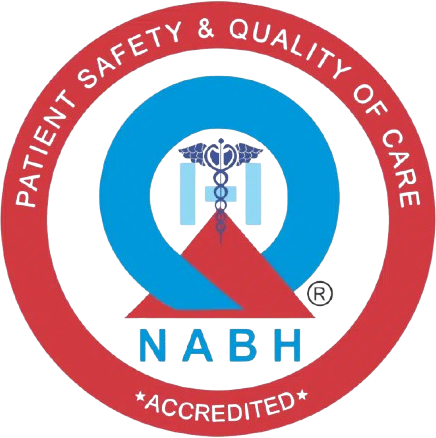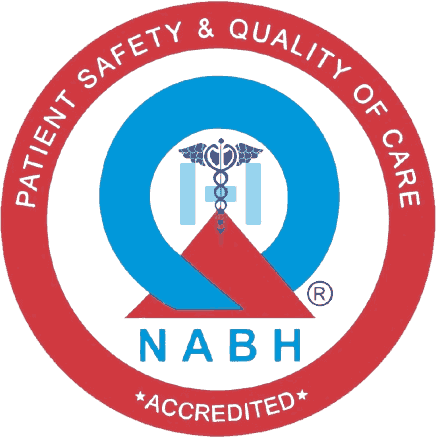Kidney Transplant Program

Why Choose Health1 for Kidney Transplant
- All care under one roof: Evaluation, donor work-up, transplant surgery, ICU, dialysis, labs, imaging, pharmacy, and long-term follow-up—seamlessly integrated.
- State-of-the-art infrastructure: Modular transplant OTs, advanced Transplant ICU, 24×7 Hemodialysis backup, and comprehensive infection-control protocols.
- Expert team: Senior Nephrology & Transplant Surgery consultants, Transplant Anaesthesia & Critical Care, Transplant Coordinators, Clinical Pharmacists, and dedicated Nursing.
- Patient-first processes: Short waiting times for work-up, clear counselling, and transparent packages with financing guidance.
- Continuity of care: Structured post-transplant surveillance, medication management, diet & lifestyle coaching, and 24×7 helpline.


What We Do
- Living-donor & deceased-donor kidney transplants
- Pre-emptive transplant (before dialysis) where suitable
- High-risk case management (multiple comorbidities, re-transplant) as per clinical evaluation
- Vascular access services (AV fistula/graft) and kidney biopsy support
- Comprehensive dialysis services (Hemodialysis & Peritoneal Dialysis)

Advanced Facilities & Services
- Transplant Operating Theatres: Laminar airflow, strict asepsis, rapid turnaround.
- Transplant ICU: Round-the-clock intensivist cover, invasive monitoring, renal-safe ventilation & sedation protocols.
- Dialysis Unit: 24×7 availability for pre/post-op support; ultrapure water systems.
- Imaging Suite: Ultrasound with Doppler for graft monitoring; CT/MRI as indicated.
- Laboratories: 24×7 biochemistry, haematology, microbiology with culture/antibiograms; therapeutic drug level monitoring for immunosuppressants (where indicated).
- Transplant Immunology Support: Blood grouping & antibody screening; crossmatch and donor-recipient compatibility testing (HLA/DSA as per protocol).
- Blood Bank: Component therapy, irradiation support where required, strict haemovigilance.
- Apheresis/Plasmapheresis: For selected indications as per protocol.
- Pharmacy: Cadre-managed immunosuppressive therapy supply with adherence counselling.
- Infection Control: Dedicated team, antimicrobial stewardship, vaccination guidance.
- Nutrition & Rehabilitation: Renal dieticians, physiotherapy, and patient education.
- Medical Records & IT: Integrated EMR for real-time care coordination and outcomes tracking.


Patient Journey
- Referral & Registration → case review and transplant coordinator assignment
- Comprehensive Evaluation → recipient & donor work-up, counselling, legal/ethical clearances
- Listing & Scheduling → living/deceased donor pathways as applicable
- Transplant Surgery & ICU Care → standardized ERAS-based protocols
- Discharge & Follow-up → scheduled visits, labs, drug-level monitoring, tele-follow-up


Donor & Legal Support
- Guidance on living donation eligibility, counselling, and statutory approvals.
- Support for deceased donor pathway and coordination with authorized networks.
- End-to-end assistance with documentation and ethics committee processes.



Safety & Quality
- Evidence-based protocols, antibiotic stewardship, and stringent peri-operative checklists.
- Regular outcomes audits and multidisciplinary case boards for complex decisions.
Financial Counselling
- Transparent packages and cost estimates.
- Support for insurance and cashless services are provided.
Disclaimer: All procedures are undertaken after medical evaluation and subject to regulatory approvals and eligibility.

FAQs for Kidney Transplant
1. What is a kidney transplant?
A kidney transplant is a surgical procedure where a healthy kidney from a donor is placed into a person with kidney failure (end-stage renal disease) to take over the job of filtering blood and removing waste.
2. Who is eligible for a kidney transplant?
Eligibility depends on several factors, including the cause of kidney failure, overall health, ability to undergo surgery, and absence of severe infections or cancer. A transplant team evaluates each candidate individually.
3. Where do donor kidneys come from?
- Kidneys can come from:
- Living donors (often a relative or friend)
- Deceased donors (individuals who have passed away and donated their organs)
4. How long is the wait for a kidney transplant?
The wait time varies based on factors like blood type, tissue match, geographic location, and availability of donors. It can range from months to several years.
5. What are the risks of a kidney transplant?
- Common risks include:
- Rejection of the new kidney
- Infections due to immunosuppressive drugs
- Bleeding, blood clots, or complications from surgery
- Side effects of anti-rejection medications
6. What is kidney rejection and how is it treated?
Rejection occurs when the immune system attacks the transplanted kidney. It can be treated with medications that suppress the immune system. Regular follow-ups and tests help detect early signs of rejection.
7. How long does a transplanted kidney last?
A kidney from a living donor can last 15–20 years or more, while one from a deceased donor typically lasts 10–15 years. Individual outcomes vary based on health, care, and adherence to medical advice.
8. What lifestyle changes are needed after a kidney transplant?
- Post-transplant patients must:
- Take immunosuppressive medications daily
- Attend regular medical checkups
- Maintain a healthy diet and lifestyle
- Avoid infections and monitor kidney function regularly
9. Can I live a normal life after a kidney transplant?
Yes, many people return to normal activities, including work, exercise, and travel. However, ongoing medical care and a commitment to a healthy lifestyle are essential for long-term success.
10. How much does a kidney transplant cost?
Costs vary by country and healthcare system. In general, expenses include the surgery, hospital stay, medications, and ongoing follow-up care.


